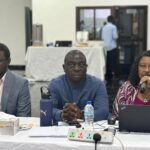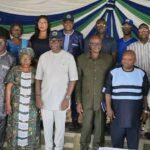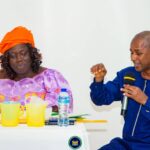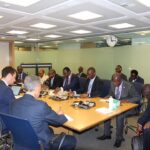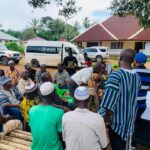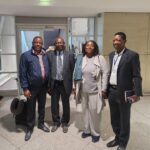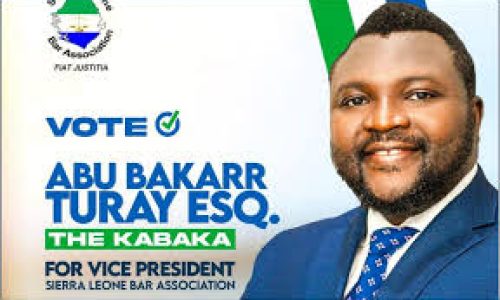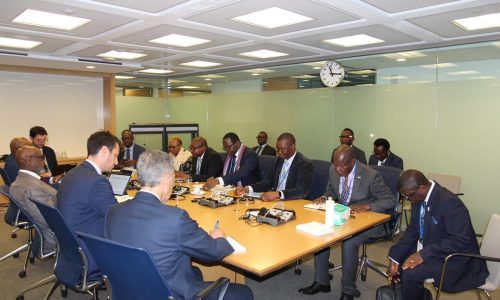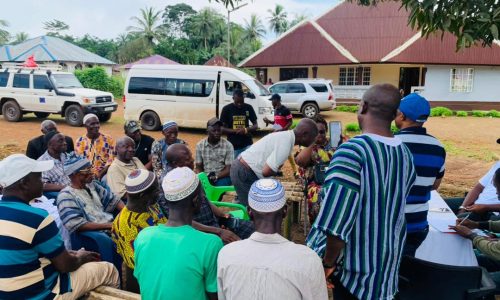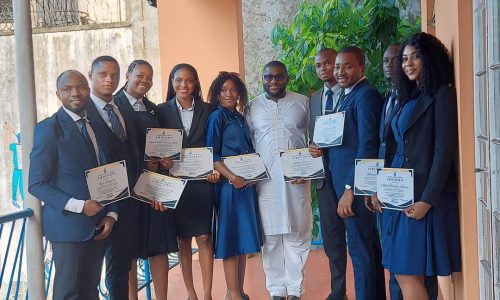THE HISTORY OF SIERRA LEONE FOOTBALL ASSOCIATION AT 98 YEARS
On the 26th March 1923 an Association was founded in a West African State of Sierra Leone known as the Sierra Leone Football League. It was founded by Mr Akita Cole and Mr Commings Doherty supported by 5 other important Sierra Leoneans as follows: Dr H.C. Dove (deceased) Mr E. S. Beoku Betts ( deceased) Mr. Amadu T Taylor (deceased) Mr. S. Davies, Mr. G. Ladepon Thomas (deceased) and Inspector V. Warren who became founding members elected Mr. Akita Cole and Mr Cummings Doherty as the first President and Secretary respectively. On the 4th June 1923 football association league championship was introduced. The name Sierra Leone football league was changed to the Sierra Leone Amateur football Association on the 26th March 1926. The Association was also affiliated with the Football Association in London because Sierra Leone was a British Colony. A young lawyer then, Mr. Beoku Betts was helped by Father Mulch to form what is now known as Sierra Leone football Association (SLFA) today. In that same year, the Kingtom Grounds was purchased for 10 shillings, 6 pence (10/6)with the help of Mr. Magnus Leigh and was entrusted to trustees. Before that, in March 23rd 1923, the first football league was organized with the participation of 13 clubs namely: (1) East End Games (2) Olympic (3) Literacy and Games (4) Barmoh (5) South Scientists (6) Police (7) Young Tigers (8) Stretchers (9) Deaphes (10) Moonlight (11) Lions (12) Cline Town Rovers (13)Railways An annual competition was also introduced between the Colony and the Protectorate. The league was played on a Home and Away basis. Freetown was the colony’s headquarter and Bo,the protectorate Headquarter. The Colony and Protectorate played their last match in 1955 which the Colony Won by seven goals to one (7 — 1). This competition was abolished and replaced with the current FA Cup by Hon. A. D. Wurie. The first international match was played against Guinea in 1951. Other international matches were also played and one such was between Sierra Leone and the Gold Coast now(Ghana) Sierra Leone played its first return leg match in Gold Coast which ended in (2 — 2) in 1959. Trophies for the league competition were donated and named as follows: Challarams Cup, Stevenson Cup, Blood Cup, Barclay’s Cup, Eastern and Western Shield. The competition was also extended to Division Two and Three respectively and there were promotions and relegations. The first Football Association died prematurely because of inadequate structures. By an act of Parliament, the National Sport Council Act was established in 1964 and the Council’s first Director of Sports was Late Mr. T. K. Bindi. It was in that same year the Football Referees Association was founded. The Sierra Leone Amateur football Association (SLAFA) was again founded in July 1967 with Mr. Amadu Dazie Wurie (AD Wurie commonly known) as its president. The vice president were Messrs’ A. A. Dillsworth (Western Area),D. S. Bindi (Southern Province), F. Koroma ( Northern Province) and Isaac Williams (Eastern Province). Other officials were: Mr. M. R. Lamin (Treasurer) and E. B Wallace Johnson as Secretary General served SLAFA for 12 years. While the clubs were waiting to see the outcome of the resolution submitted to Government for consideration then appeared a sudden “wind of change” in the SLAFA Executive following the retirement of its President, Mr. Sam L. Sesay. This necessitated impromptu election ordered by the minister responsible for Sports, and then Hon. Thaimu Bangura (deceased), to take place on that same day of 14th October, 1981. The new body of SLAFA took full national responsibility and no doubt took over the administration of football with selection of its executive members exclusively from the Western Area. Another trouble started with provincial people feeling dissatisfied. The battle continued unabated. The past presidents, who left their imprints for us to follow their progressive ideals, include but not limited to Messrs,Akita Cole,Ernest Beoku Betts,Festus George, W. A. Dillsworth, A. D. Wurie, Edward Akar and Justice Tholla Thompson. As a mark of improvement at that time, Sierra Leone can boast of six oversees trained coaches as follows: Steven Bio, Amadu Kargbo, Freddie Pratt, Amadu Okro Kamara, M. B. Kamara and Ghazie Hygazie(deceased). The National Referees Association summited seven names as follows: E. B. Wallace Johnson, A. S. Gondor, Willie Thompson, Francis Agbehere, Freddie J. Pratt, Patrick Kamara and F. B. Sally for the first time to FIFA and were all Included in the list of international Referees in 1967. At that moment, Messrs, E. B. Wallace Johnson (retired), A. S. Gondor,Freddie J. A. Pratt(deceased), Willie Thompson, E. P. Robinson and Patrick D. Green have seen been decorated. Several experiments were undertaken in limiting the number of competitions, reducing the number of teams, introducing a juvenile competition and accepting new clubs with names like their ancestors such as— Kailondo,Bai Bureh, Khakuma,Massiaday and Mammy Yoko — into the Division 1 to take part in i international friendlies. One aspect of that work was the’Wurie Plan’ that came into operation when the under 14 competition was introduced and added more glamour to the game. In 1992,the name Sierra Leone Amateur Association (SLAFA) was changed to Sierra Leone football Association (SLFA) based on the coming in of professional players into the game. Which gives birth to the differentiation between professionals (foreign based) and Home Base (Amateurs). The history of Sierra Leone’s football was still in writing when the DAWN OF A NEW ERA came with the election of the first female president of SLFA, Madam Isha Johansen on August 3rd,2013. Six articles of faith (Sunni Islam) Belief in one God (Tawhid) This means having absolute faith in the oneness of God. Allah is simply the Arabic word for God. It has no plural in Arabic, which shows that there is only one God. Muslims believe that no being is like Allah. Belief in angels (malaikah) Muslims believe that God’s greatness means he cannot communicate directly with humans. Instead, God passed messages, called risalah, to his prophets via the angels, called




